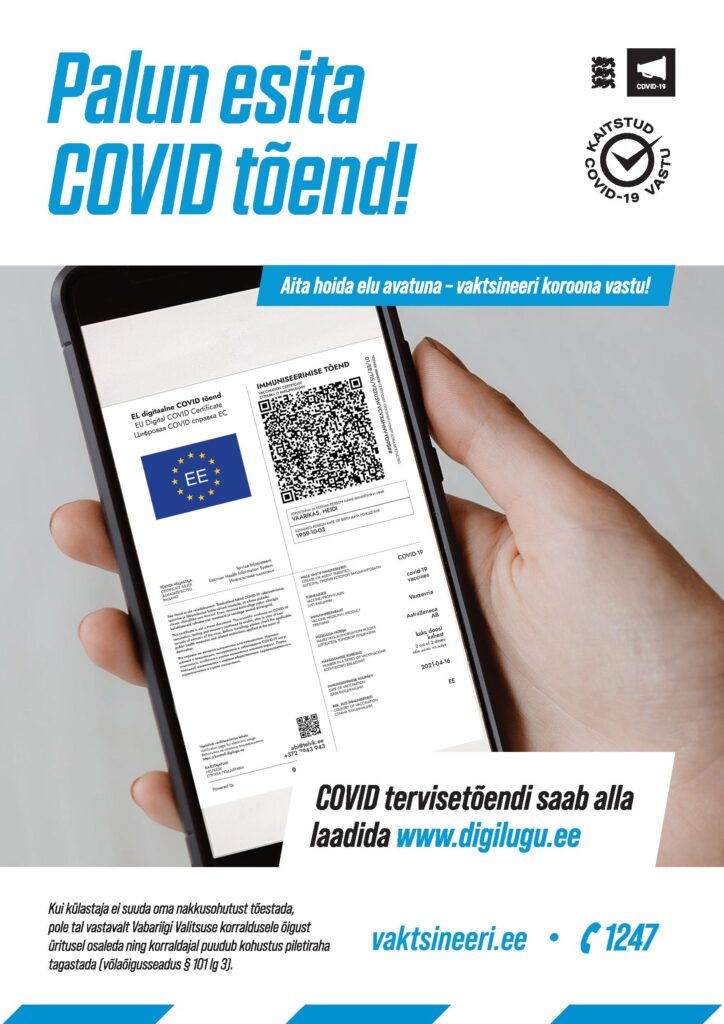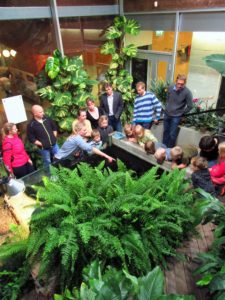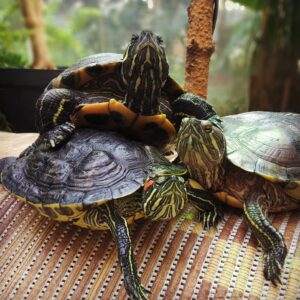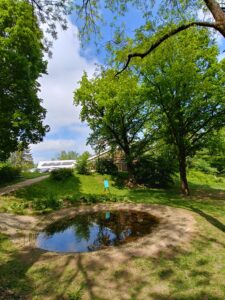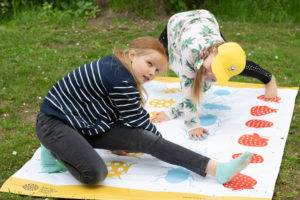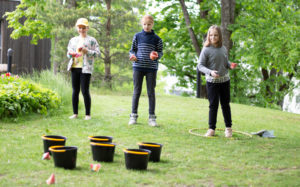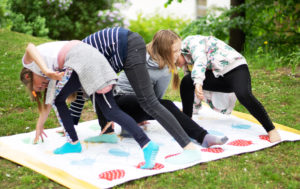Tartu Nature House hosts its traditional early mushroom exhibition where a wide selection of mushrooms from Southern-Estonian forests, meadows, parks and lodges is displayed. If lucky, 100-150 different species can be seen. In the small mushroom laboratory you can also get acquainted with the mycelium, spore leaves and tubes and animals living in fungi. Mushrooms growing in the park of the nature house are also marked during the exhibition.
Mushroom exhibition 13.-16.09
Tartu Nature House, Lille 10
10:00 -18:00
TICKET: Adults 3€ / pupils, students, pensioners 2€ / children under 5 years free of charge
Facebook event (in estonian)
Additional information:
Liina Vakrööm
exhibition manager
liina.vakroom@tartuloodusmaja.ee
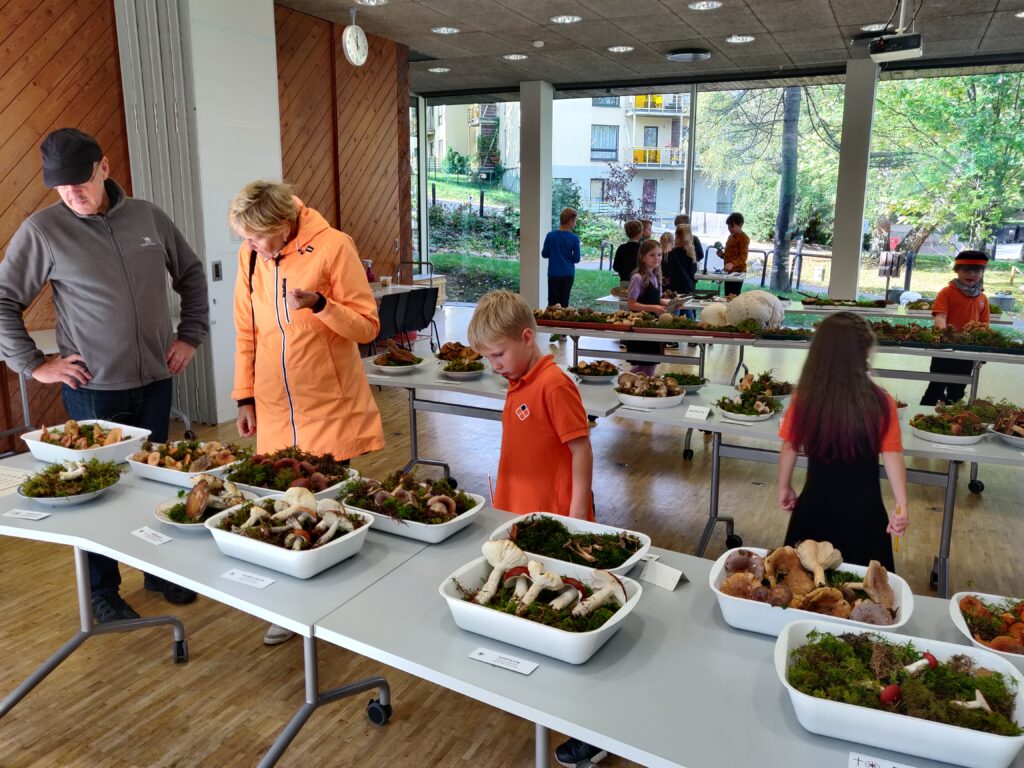
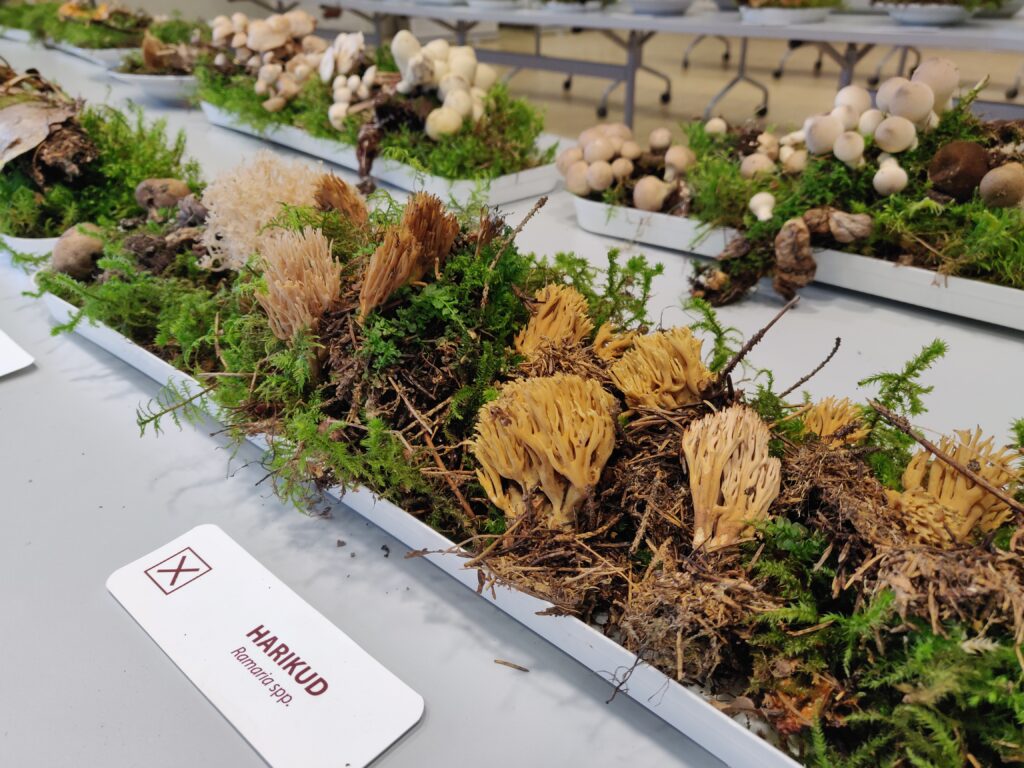
Dear parents and students!
We are pleased to announce that the registration for Tartu Nature House 2022/2023 hobby classes is now open!
Tartu Nature School is a child and environmentally friendly hobby school. We offer the joy of discovery and new knowledge to more than five hundred children and young people each year. We often go and spend time in nature, but we are also active indoors and in the laboratory.
Although the classes are in Estonian, we also welcome non-Estonian speaking children and young adults in our activities and it is possible to participate in some classes on the basis of English. It is a great way to practice Estonian, learn about local nature and find new friends!
There are multiple estonian speaking classes that welcome english speaking children in which the teacher will translate the activities and assignments.
| HOBBY SCHOOL CLASSES |
| Class: Little Naturalists
Language: Estonian, but the class is also open for English speaking pupils, teacher will translate activites and assignments
Age: 1.-3. grade, 4.-6.grade
Subject: We will create fantastical inventions and do experiments out of nature friendly materials; discover and analyze the physical secrets of nature; improve our manual skills and creativity |
| Class: Woodworking
Language: Estonian, but the class is also open for English speaking pupils, teacher will translate activites and assignments
Age: Pre-school (4-6 y), 1.-3. grade
Subject: We will learn about different types of wood and their properties; how to use woodworking tools and techniques; how to design and make models, toys and machines out of wood |
| Class: Technology and recycling
Language: Estonian, but the class is also open for English speaking pupils, teacher will translate activites and assignments
Age: 4.-12. grade
Subject: We will deconstruct everyday mechanical and electrical items and machines to discover how they work; learn to repair things and find new ways how to use them; build toys and selfmade mechanisms from recycled materials; visit interesting technical facilities around Tartu |
| Class: Environmental Studies
Language: Estonian, but the class is also open for English speaking pupils, teacher will translate activites and assignments
Age: 7.-9.grade, 10.-12. grade
Subject: We will discover nature in diverse ways – by our hands, eyes, noses and mouths; learn how to plan experiments and research; use different methods and equipment to do natural science studies; improve our knowledge about ways to live more environmentally friendly; participate in camps, fieldtrips, fieldwork and science fairs; write natural science student projects and develop them in a national/global scale. |
| Class: Camping adventures
Language: Estonian, but the class is also open for English speaking pupils, teacher will translate activites and assignments
Age: 10.-12. grade
Subject: We will discover the Estonian nature in all ways and learn teamwork through physical activites; learn in theory and practice how to move and survive in nature and plan a hike; learn how to read animal tracks and navigate with the help of natural signs; prepare food and a campsite; try different styles of hiking like climbing, canoeing, sailing, snowshoeing, etc. Tartu Nature House has hiking supplies for the class that participates can borrow. |
General information:
- IF YOU WOULD LIKE TO SIGN UP, please contact the study coordinator and she will send you the sign up sheet in english: Pille-Riin Pärnsalu, pilleriin.parnsalu@tartuloodusmaja.ee, (+372) 5344 2512.
- There are a lot of extra activites beside classes the children can participate in – camps, hikes, excursions, exhibitions, quizzes, nature theatre night, etc. Tartu Nature House is also part of Eco-Schools Global and UNESCO Associated Schools Network and takes part in their program activities.
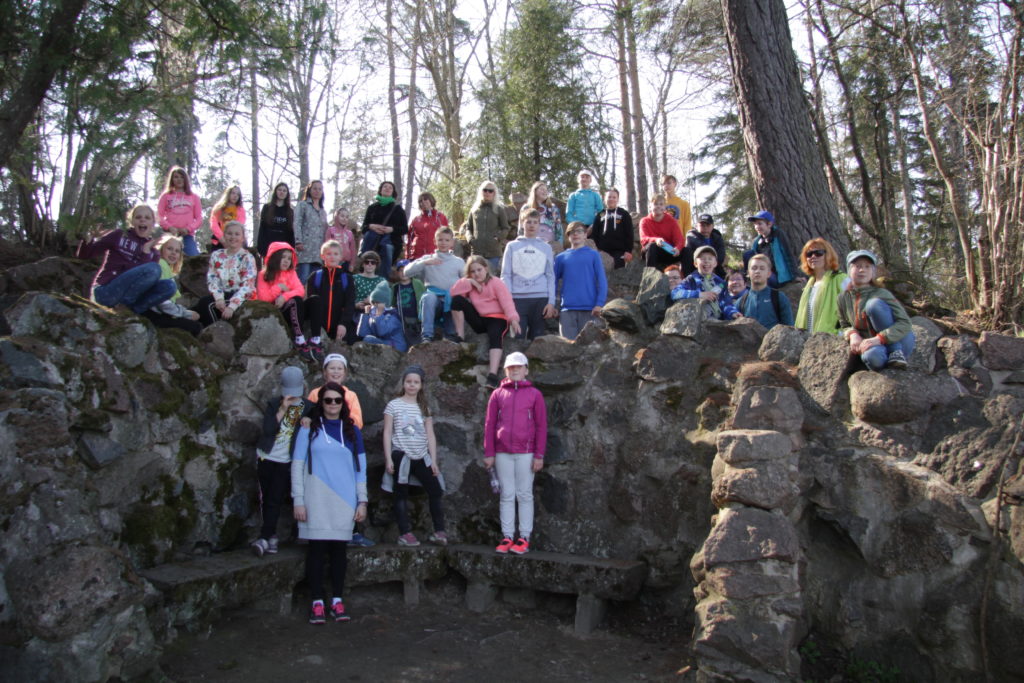
If all the other attractions in Tartu Nature House and its Park have already been tried out and you are looking for more fun activities for your family and friends then we have new and exciting outdoor games for you to rent and enjoy! There are a variety of games that require active movement and puzzling, suitable for both children and adults, for picnics and small outdoor workouts.
The game selection includes:
- Different throwing games
- Nature House “Twister”
- Good old chinese jump rope
- Fun with hula hoops
- A match game for puzzles
- “Tic-Tac-Toe”
- Jumbo “Jenga”
- Badminton rackets (coming soon)
- Jumbo Dominoes (coming soon)
- A game of “4 In a Row” (coming soon)
Price:
Game set (1-3 games according to the request of the lender ) 5€
1 game included in the ticket price for family and house ticket buyers
*Games can be rented on the basis of a valid identification document for up to 2 hours. Games are to be used in the park area of a Tartu Nature House!
Open hours in summer: Tue-Fri 10-18; Sat 11-16
Did you know it was possible to visit Tartu Nature House without leaving the comfort of your own home?
You can dive into our warm and colorful virtual tour between the walls of your very own home and discover the exciting corners of Nature House you’ve never seen before. Be sure to turn on your speakers when wandering around the conservatory!
Exhibition “Transparent Nature House” introduces the visitor almost everything found in the Nature House and its park through spherical pictures.
Information can be found on environmentally friendly building solutions, the Nature House principles of using, as well as on conservatory plants, animals, and the use of water and energy.
The exhibition will show just how a Nature House located in the center of Tartu uses solar energy, rainwater, cashmere goat wool, clay, and wood in a way that both cares for their visitors and nature.
Start your virtual tour here >>
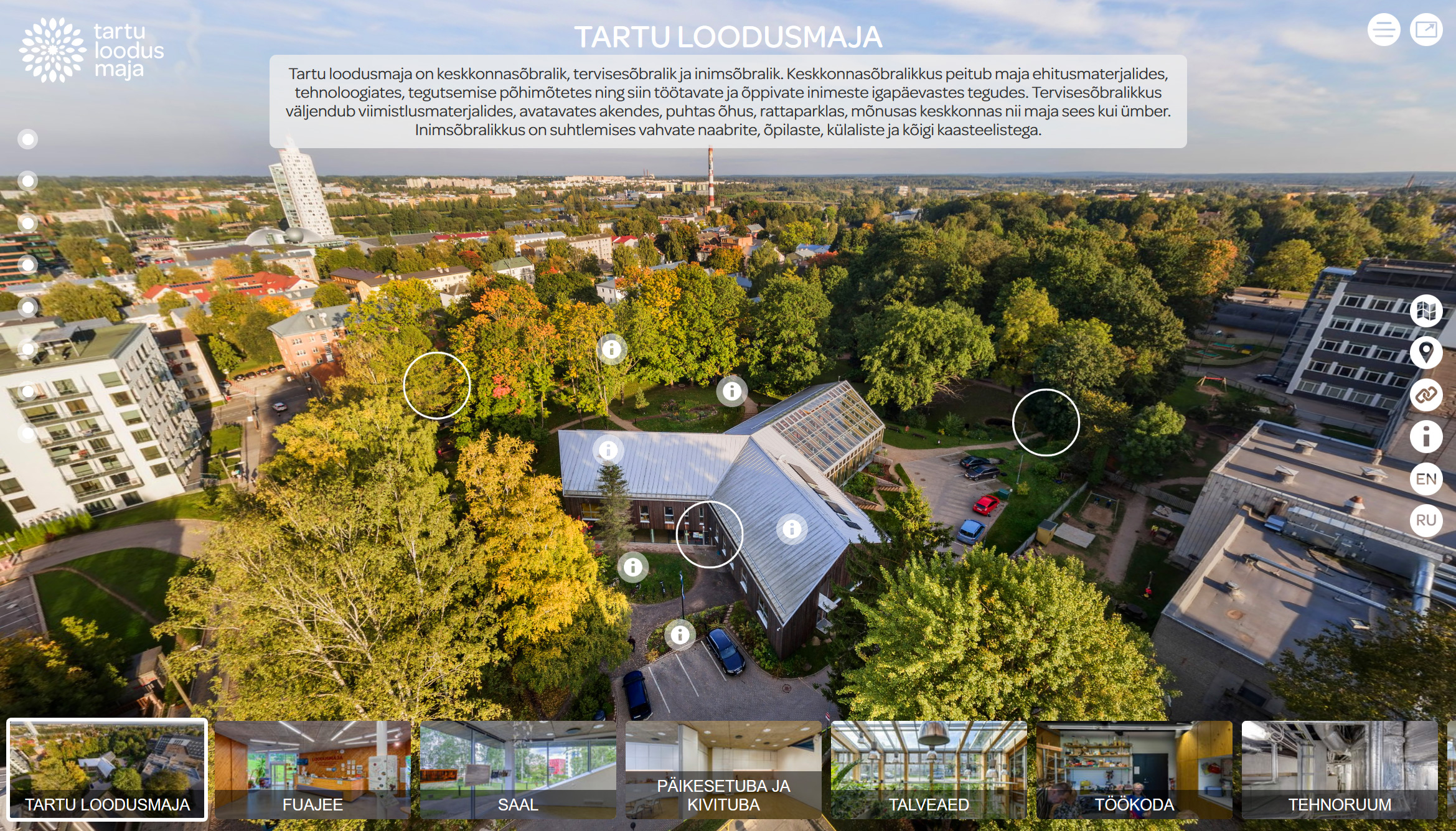
Welcome to the European national and symbolic animal quiz!
Tartu Nature House invites all Estonian school pupils to participate in a quiz on knowing the national and symbolic animals of European countries.
Europe is a continent composed of several different countries, each with its own language and culture, so there is no singular national animal. Instead, individual countries have chosen their own national and symbolic animals. To prepare for the Quiz you can get acquianted to them we have prepared a list of the animals for you. Have a look at the list before taking the Quiz >>
The rules are simple:
- Each participant can choose their own level to answer. You can choose higher but not lower level.
- There is a certain time frame when the Quiz is open. It is from 14th February to 28th February.
- You can take the Quiz several times. But you will get points only for your fist submitted Quiz.
- You need headphones or speakers for Grade 4 – 12 Quiz. It will have some audio clips.
- If you have some problems with quiz write to pilleriin.parnsalu@tartuloodusmaja.ee
Take the Quiz and test you knowledge!
Grade 1 – 3
/the Quiz is not active any more/
|
Grade 4 – 6
/the Quiz is not active any more/
|
Grade 7 – 12
/the Quiz is not active any more/
|
Prizes for the smartest participants!
Tartu 2024 – Euroopa Kultuuripealinn ja Rohelille disain
Matsalu Nature Film festival is organised already for the 19th time and Tartu Nature House is happy to announce that a selection of the best nature movies will be shown in Tartu also from 22.-24.09.2021. The purpose of the festival is to introduce and recognise new nature films and their creators. Also to increase interest in environmental issues and raise awareness about sustainable lifestyle via films.
Additional information on Matsalu nature film festival website: ww.matsalufilm.ee
Film festival schedule in Tartu Nature House:
Wednesday, 22. of September
- 17.00 – “What a colorful World” (Austria, 50 min)
- 18.00 – “Rebirth” (Taiwan, 60 min)
Thursday, 23. of September
- 17.00 – “My Dragon River” (Germany, 52 min)
- 18.00 – “The Otter, a Legend returns” (The Netherlands, 52 min)
- 19.00 – “Animal” (Germany, 75 min)
Friday, 24. of September
- 17.00 – “Nature’s Nurseries” (Germany, 48 min)
- 18.00 – “Santa’s wild Home” (Austria, 50 min)
- 19.00 – The Winner Film
Ticket Information:
| |
Full price |
Discount* |
|
| MAFF Pass |
24 |
12 |
Entrance to all the movies from 22.-24.09 |
| Single ticket |
4 |
2 |
Entrance to one of the selected films |
* teachers, students and pensioners
The event is free for schoolchildren, but we advise to pre-book the tickets.
Booking of Matsalu nature film festival tickets and festival passes goes through the link below:
Ticket booking
Tickets can be bought from Tartu Nature house
Additional information: +372 736 6120, info@tartuloodusmaja.ee
From 26.08 some COVID-19 protective measures will be applied (from the age of 18).
For you to visit Tartu Nature House you must provide one of the following:
- Immunization certificate (only when fully vaccinated) with identity document;
- Certificate of recovery from COVID-19;
- Negative PCR test not older than 72 hours;
- Rapid antigen tests performed by a healthcare provider not older than 48 hours.
OR in some cases wearing a mask is mandatory. Children under the age of 12 or visitors for whom it is unreasonable to wear a mask for health reasons or other important reasons do not have to wear a mask.
***
Additional information: +372 736 6120, info@tartuloodusmaja.ee
Tartu Nature House is a happy secret world for children, animals and plants, hidden between the roads and buildings of the city center. We live here in our own rhythm, teaching and raising children, young people and families to be greener and more caring people. And to be able to care, you have to be able to notice! The Nature House encourages children, young people and adults to notice, explore and preserve the richness of the species, and attracts all the people of the city to look through green glasses.
5+ reasons to visit
Tartu Nature House this summer
- A unique building designed specially for environmental education
- Different exhibitions to discover
- A fun selection of outdoor games
- Exotic winter garden with turtles
- Park with trails and playground
Opening times in summer:
TUESDAY-FRIDAY 10-18
SATURDAY 11-16
Lille 10, Tartu
info@tartuloodusmaja.ee
Exhibition “Me, superorganism” 14.05.-01.09.2021
From May 14th, Tartu Nature House invites you to visit the brand new exhibition “Me, superorganism”, which was created in cooperation with the Estonian Health Museum, TalTech and the Center of Food and Fermentation Technologies.
The aim of the exhibition is to introduce visitors to the benefits of bacteria. Specifically, how our body’s microbial communities affect our health and well-being, and what we can do to keep our microbiome balanced and healthy.
We have always lived alongside microorganisms, and a strong symbiosis has developed. The introduction of new technologies has allowed us to identify thousands of new bacterial species and their functions. Microbiome research is a rapidly developing area of scientific research. Our co-existence with bacteria has never been considered more important or better understood. At a time of medicine moving towards a patient-centric approach, this is a science of the future with great potential!
This exhibition is translated in both Russian and English.
In summer, the exhibition can be viewed at Tartu Nature House, Lille 10 from Tuesday to Friday from 10 am to 6 pm and on Saturdays from 11 am to 4 pm.
Ticket information:
Exhibition visit only: full 3 € / discount 2 € / family 10 €
Exhibition + house visit: full 5 € / discount 3 € / family 13 €




